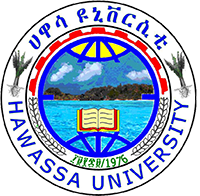University-Industry Linkage is a system through which Hawassa University or its academic staff interacts with industry through joint research, contract research, research grants, consultancy, community engagement, staff mobility, joint supervision of students, student internships, staff externships, co-operation in education, training of industry staff at higher education institutions and lecturing by industry staff. University-Industry linkage activities play pivotal role for the country’s overall development. The linkage is essential for knowledge, experience and technology transfer from and to the industry.
The following are some of the links that HwU has been working:
Student placement schemes (internship)
This form of UIL involves placing students at industries for specific period so that they have practical exposure. University students are required to work in the industry as part of graduation requirement in some fields of study. This gives the students an opportunity to see real industry problems and back to the University with researchable problems. Students from medicine, engineering, law, and veterinary medicine science programs have minimum of one-semester internship programs as part of undergraduate degree program curricula. Industry provides practical experience, which allows the students to get familiar to the world of work.
Externship
This is form of university-industry linkage aimed at continuous professional development. University staffs are placed at industry for specific period to acquire practical knowledge, share experience and/or identify the skills needed in the work place.
Contracted (sponsored) research
Industry problems are brought to the University with research fund so that the university staffs and students undertake research to solve the problems. The research deliverables and goals are set in the agreement.
Cooperative research
It includes type of researches conducted for mutual benefit of the University and industry. A contract is drawn between the University and industry in which costs associated with the work are shared as specified in the contract. In such arrangement, professionals from the University and the industry jointly engage in research projects. The research outcome may improve product quality, production process, service quality and may support new product development.
Consultancy services
One or more individuals from the university provide specific consultancy services to industry in terms of formal written contract agreement. Industry may need consultancy services during new technology acquisition and utilization for designing, manufacturing, testing, operation and maintenance. Appropriate professionals are appointed to give required consultancy services for specific period. Short-term training, expert advice or analysis services, construction supervision and design verification are common channels used to transfer knowledge. The faculty can also serve the company as regular consultant in its area of expertise.
Enterprise support and development (spin-offs)
Support to small and medium-sized enterprises is given using knowledge and skill available at the University. Besides, an entrepreneurial spin-off arises when an entrepreneur leaves the University to start a firm. Technologies developed in the institutions are commercialized through new enterprises wherein students and faculty may participate.
Patent licensing
Licensing is the transfer of ownership rights in intellectual property to a third party to permit the third party to use intellectual property. Research outputs from the University which can be commercialized are patented to secure patent right. Patents resulting from inventions from any research undertaken by faculties and students using the University resources belong to the University. There are a number of research outputs from faculties and students which are patented. Then, the University formally transfers the right to use the technology to the Industry by integrating it into processes, products and services. Legal framework for patent licensing, and rules and regulations for intellectual property administration is on being devised.
Technology business incubation centre
Hawassa University has established Technology Business Incubation Centers (TBICs) at Agricultural Collage and Institute of Technology to promote innovative and executable ideas from various disciplines of basic sciences, agricultural sciences, engineering and other creative fields, and help them realize the ideas into products, processes or cervices for the benefits of society as well as industry. TBIC aim explicitly at incubating enterprises with advanced technology content. Set of business support service is designed to include those that facilitate technology transfer and commercialization of new technologies. The primary task of TBIC is not to create new jobs but to commercialize new technologies through innovative entrepreneurial ventures. The center provides a suitable environment for housing micro and small enterprises, and offers its clients with working space and equipment, technical support services, access of funding sources, knowledge of the market and technologies.
Science and Technology Park
Science and Technology Park (STP) is a property-based initiative, which provides businesses with high quality premises. Hawassa University is working towards the establishment of STP to foster knowledge-based small enterprises, and provide technologies for the industries. STP stimulates and manages the flow of knowledge and technology amongst universities, research institutions, companies and markets. It also facilitates the creation and growth of innovation-based the needs of industries through incubation and spin-off processes.
